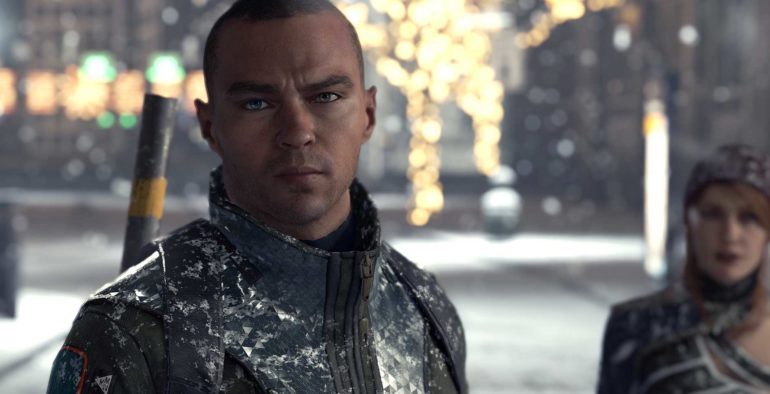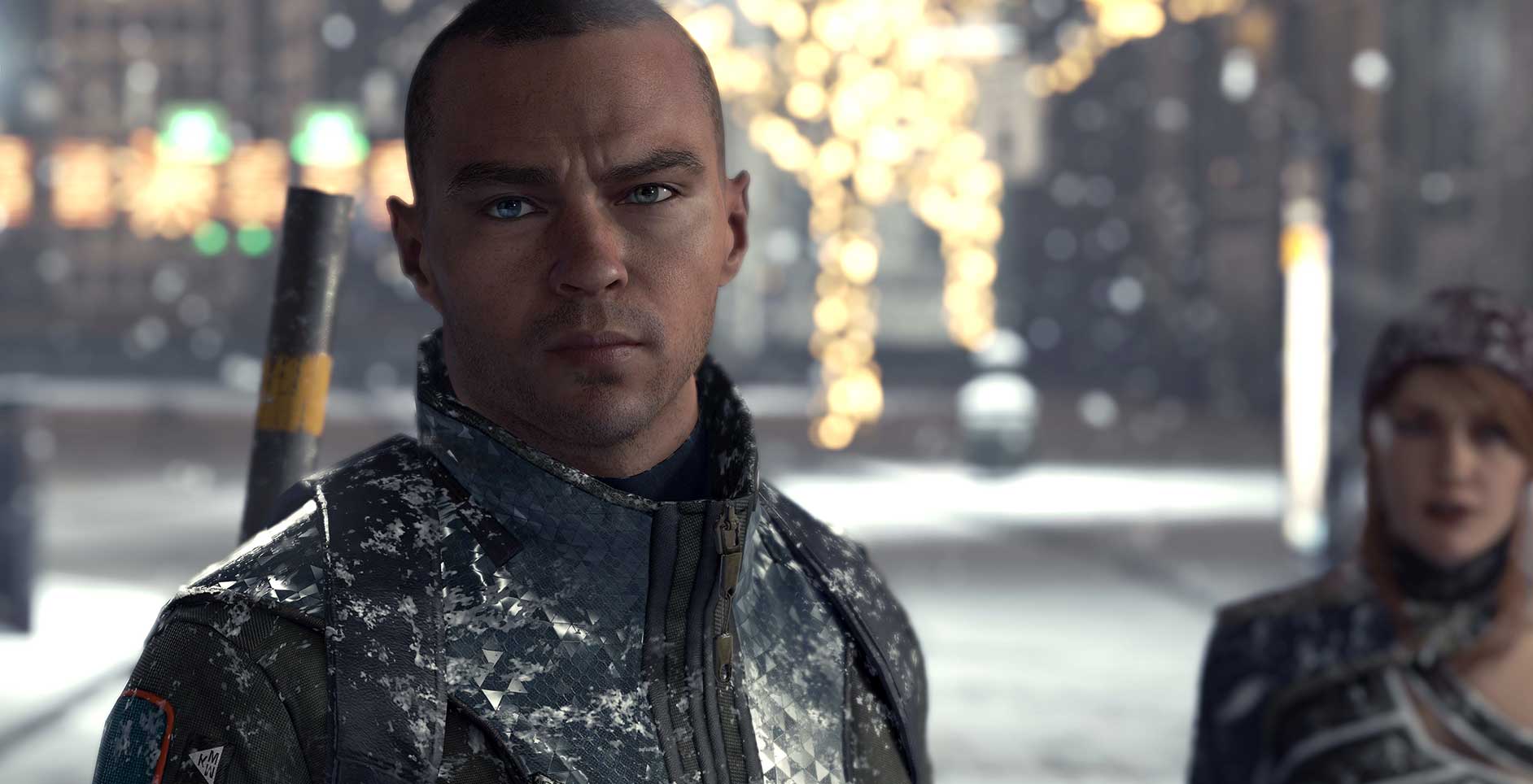David Cage has a long and storied past in regards to his contributions to the industry both inside and out of his games. Not a lot of it is positive as his workplaces are known to be dens of discomfort for some and his games have never really reached the promised heights. Detroit: Become Human doesn’t reinvent the formula, in fact, it emulates its predecessors almost exactly. Like Heavy Rain and Beyond: Two Souls before it, Detroit is more an interactive motion-picture that plays out across the screen while players execute quick-time events to shape the game’s sprawling narrative.
That’s where the similarities end. David Cage, never lauded for his writing, has managed to pen something special with Detroit. Though the three separate narratives are thematically tied, they’re very different at their core. The fact he’s managed to tie all three together, intersect them and be left with a story that’s both emotionally impactful and coherent is a triumph I never expected from the man who wrote Beyond: Two Souls.
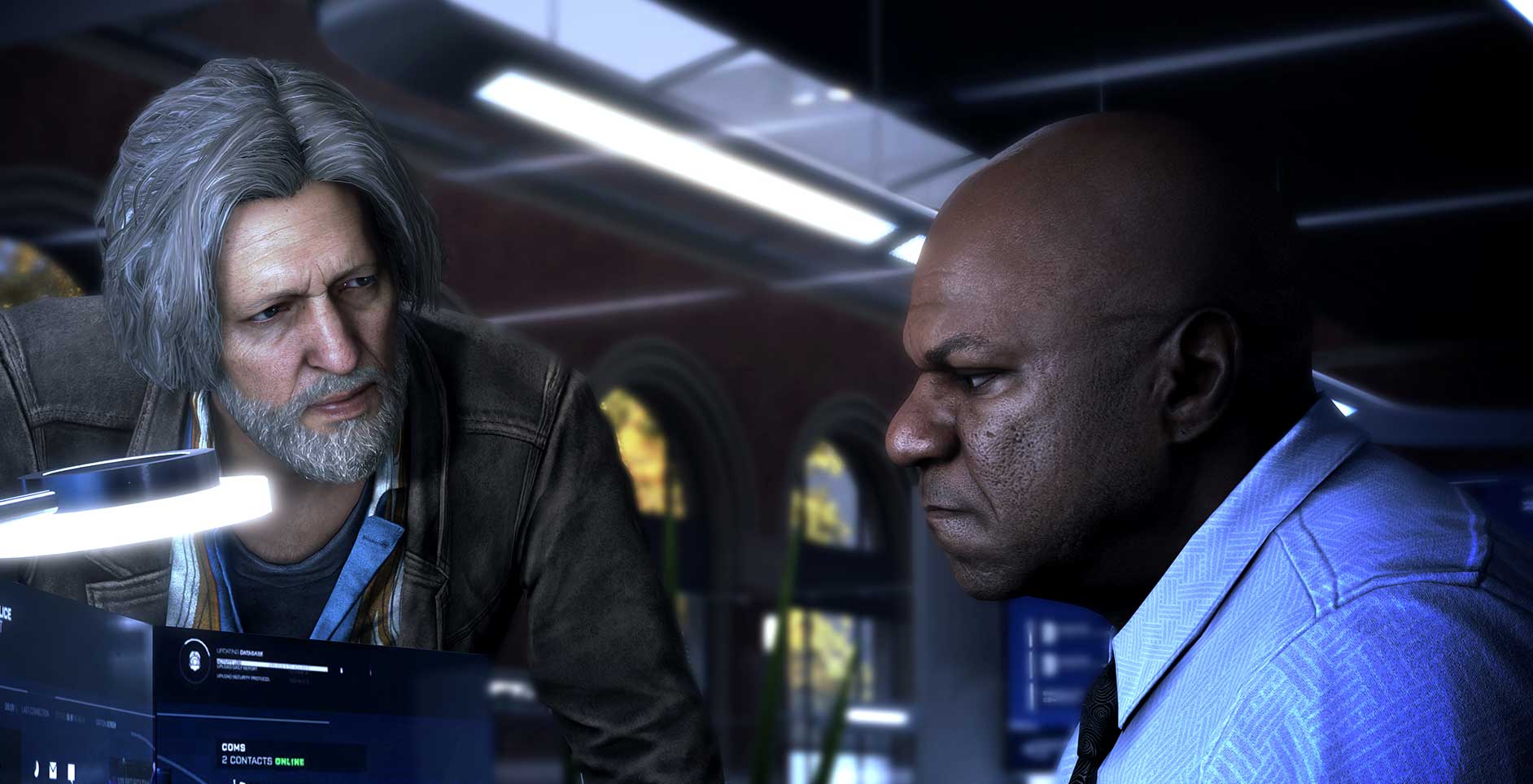
Detroit: Become Human truly feels as though it’s a labour of very careful construction, built from the ground up. Its world is so excellently established from the get-go and littered with minute details, it wasn’t until the second playthrough that I appreciated half of them. Cage has created a world where humans are so reliant on androids for menial tasks that the process of rubbish disposal has become as simple as tossing garbage in front of a sanitary android sweeping the curb. It’s bleak but also alarming given both its near-future setting and the looming moral-disconnect of mankind as the technology age continues to sap our humanity.
While these little details really help hammer home Detroit’s message, at its core it simply asks what it means to be alive. It’s a simple and elegant question that has been asked countless times before in science-fiction. In an already crowded sub-genre, Detroit: Become Human earns its place and answers the question better than most.
Cage’s direction is excellent throughout the game’s ten-hour playtime and it’s thanks to his ever-careful eye that performances from Bryan Dechart, Jesse Williams and Valorie Curry really stand-out. And in an effort to prove humanity isn’t wholly evil, Detroit smatters in a handful of supporting roles who all have arcs as satisfying as the leads. Rose is a character that’ll long come to mind as the epitome of empathy as she, as a woman of African-American descent calls upon her people’s history and puts that at the forefront of why she doesn’t discriminate against the maligned androids. It’s a subtle nod to Detroit’s civil rights and racism subtext that’s all too relevant in modern America.
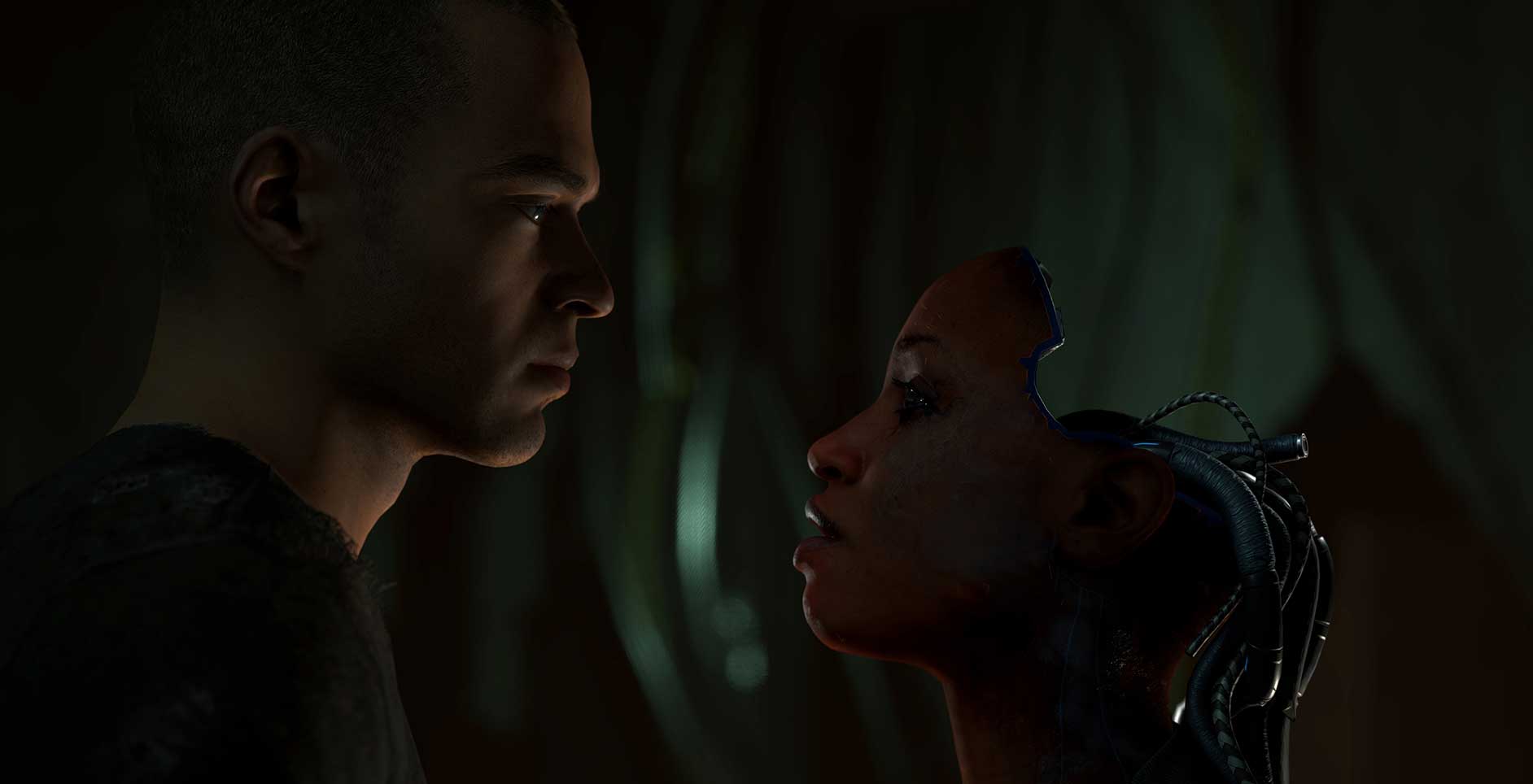
Although one playthrough will take about ten hours to get through, Detroit has enormous replay value given the branching plot of all three characters. My first ending was, I’m guessing, the game’s intended “good” ending and it took running through again and opting against my initial decisions to discover a bit of awkwardness in some transitions between scenes. It only takes looking at the game’s flowchart to appreciate the mammoth effort undertaken in stitching all possible outcomes together in a coherent manner.
Like its predecessors, Detroit: Become Human is a cinematic experience which almost plays out like a gripping television series. Like with all Quantic Dream titles, this immersion comes at the cost of deep, developed game mechanics. Instead, the actions of characters are usually determined by quick-time events, dialogue options and tough choices. It wound up being these choices that so often broke me as it was hard seeing these characters, who I had grown attached to, sink to what one might consider low acts.
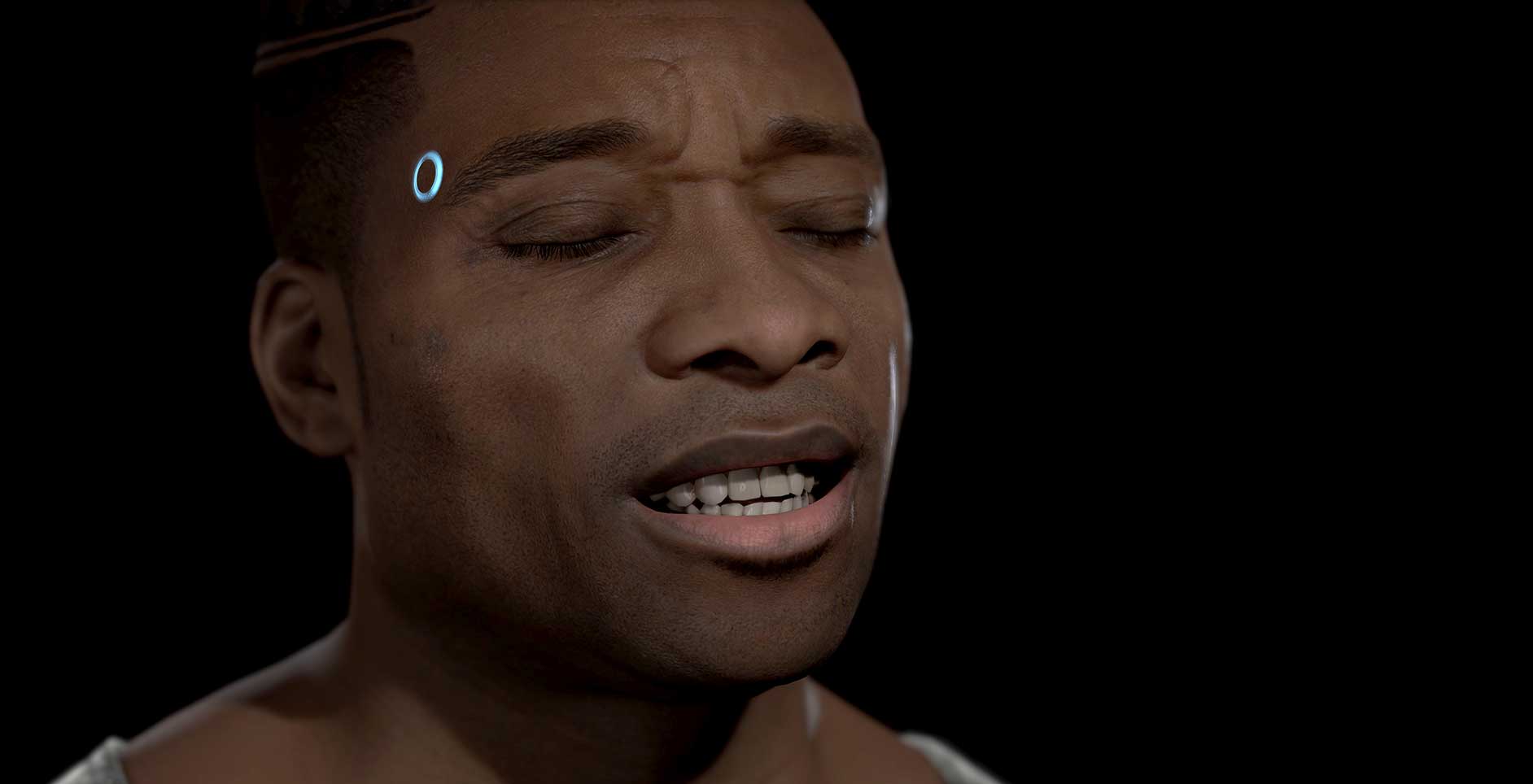
Ironically, it’s when Detroit tries most to be a game that it sort of flails. Having to steer any of the game’s three leads can often prove troublesome as the movement still appears and feels unnatural. Granted, given Detroit’s top-tier animation and lighting it’s harder to notice than a generation ago but characters handling like shopping trolleys and getting caught on corners is never fun.
With the exception of God of War, I have to say Detroit: Become Human is comfortably one of the console’s best-looking titles. It says a lot about the visuals that a game about androids discovering their human side could convince me, through clear and emotive human traits, they’re alive. Regardless of their other failings, I did admire the striking, symbolic imagery in both Heavy Rain and Beyond. Detroit is no different. I’ve always considered David Cage to be the Zack Synder of the medium. He’s always had a great eye, but just can’t get the runs on the board. The odd texture pop and rendering issue can’t manage to detract from this stunning game and its cast’s performances.
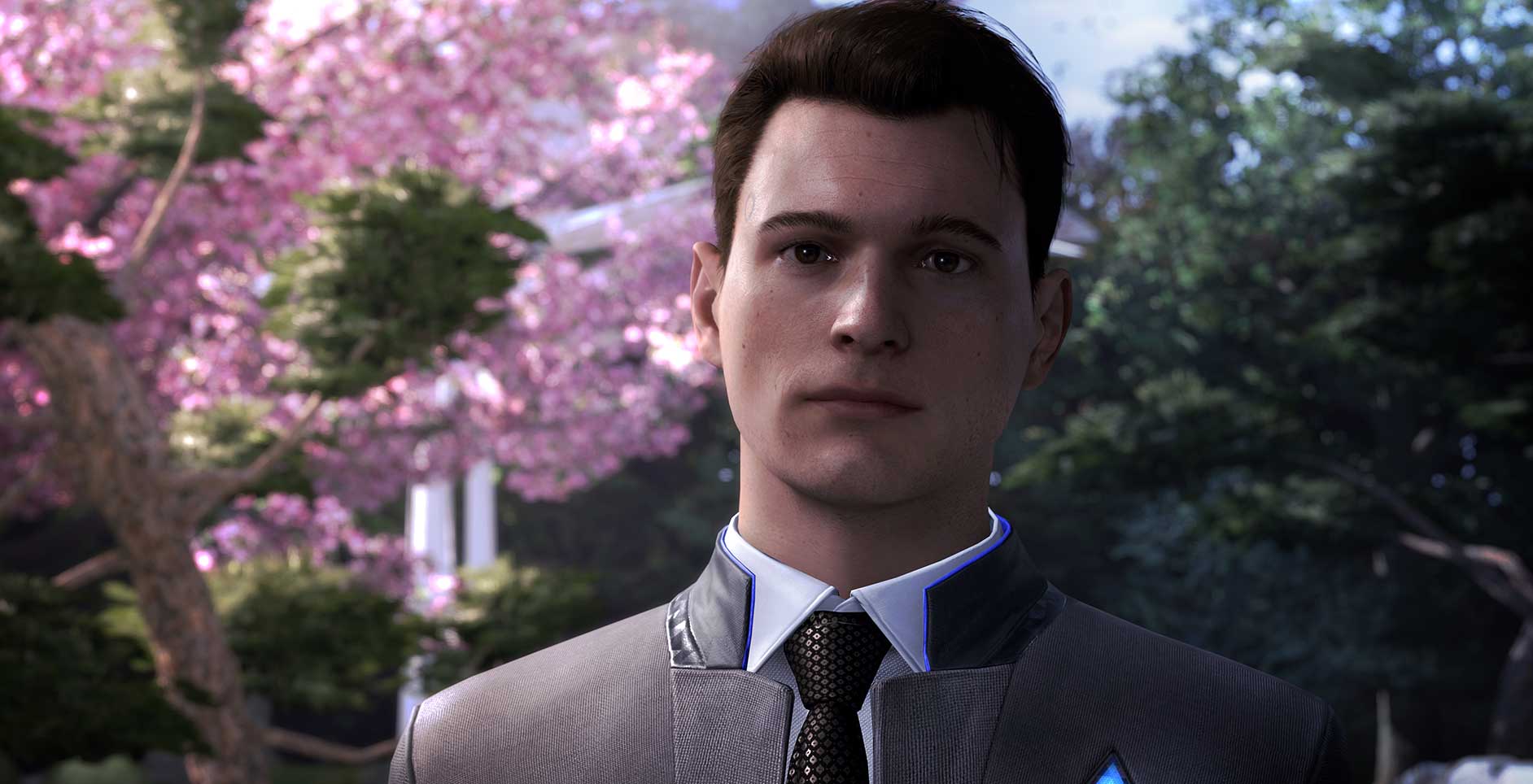
The fact that each lead has their own composer scoring their chapters is another feather in the cap of Detroit’s presentation. Given Connor starts as the coldest, most inhuman of the three, his theme feels as calculated, urgent and robotic as his mission, while Markus has a theme that is far more stoic and transformative which speaks to the hopefulness he holds onto while sparking the revolution. It’s a nice touch that gives each character a clear identity.
Love it or hate it, Detroit: Become Human is still very much a David Cage game in that it fails to slip its roots and become an involved experience. That said, I don’t think that was ever the intention. Cage has long been comfortable with his lot as a maker of what could be described as ‘choose your own adventure’ films, but with Detroit, he has taken a bold step forward in redeeming himself in his weakest area. Detroit: Become Human is a deeply affecting cobweb of strong characters, themes, striking imagery and subtext that are all explored and, for the most part, resolved as effortlessly as a writer and director could hope.


